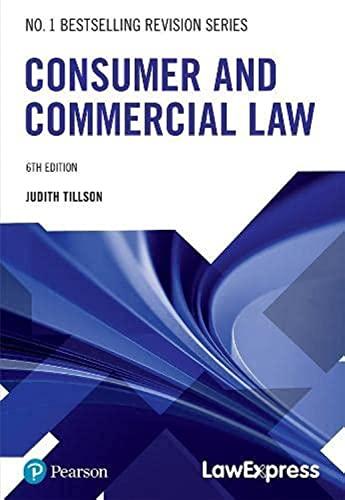Question
Question 1 a)Define the term Financial Engineering and explain 3 main components of financial engineering. (8 marks) Question 2 1) Explain the factors responsible for
Question 1
a)Define the term "Financial Engineering" and explain 3 main components of financial engineering. (8 marks)
Question 2
1) Explain the factors responsible for financial innovations. (12 marks)
Case study
c)TNT Ltd has a paid up share capital of 1.2 million shares of Sh.20 each. The current market price per share is Sh.36. The company has no loan capital. Maintainable earnings before tax are forecast at Sh.4.8 million. The companys effective tax rate is 40%. The company requires to raise a further Sh.15 million in order to achieve additional earnings of Sh.2.2 million per year and proposes doing this by means ofa rights issue. Suggested alternative prices for the rights issue are Sh.32 and Sh.25 per share.
Question 3
Calculate, when the price is Sh.32 per share, the theoretical market price per share of the enlarged capital after the issue (the ex-rights price) and also the market value of a right. (8 marks)
Answer
c) Issue price to adopt
- .
d) The factors which might invalidate the calculation are as follows:
.
Question 4
a) Explain the main reasons why multi-national companies (MNC) seek foreigninvestment.
Question 5
Explain the types of political risks that face multi-national firms in foreign countries.
Question 6
Explain the steps than multi-national firms can take to minimize political risks
Case study
Daegu Construction Company Ltd made a Sh.100 million bondage 5 years ago when interest rates were substantially high. The interest rates have now fallen and the firm wishes to retire this old debt and replace it with a new and cheaper one. Given here
below are the details about the two bond issues: Old Bonds: The outstanding bonds have a nominal value of Sh.1,000 and 24%
coupon interest rate. They were issued 5 years ago with a 15-year maturity. They were initially sold a their nominal value of Sh.1,000 and the firm incurred Sh.390,000 in floatation costs. They are callable at Sh.1,120. New Bonds: The new bonds would have a Sh.1,000 nominal value and a 20% coupon interest rate. They would have a 10-year maturity and could be sold at their par value.
The issuance cost of the new bonds would be Sh.525,000. Assume the firm does not expect to have any overlapping interest and is in the 35% tax bracket.
Question 7
Calculate the after-tax cash inflows expected from the an-amortized portion of the old bond's issuance cost.
Question 8
b) Calculate the annual after-tax cash inflows from the issuance of the new bondsassuming the 10-year amortization. (2 marks)
Answer
Question 9
Calculate the after-tax cash outflow from the call premium required to retire the old bonds.
Question 10
Determine the incremental initial cash outlay required to issue the new bonds.(10mks)
Step by Step Solution
There are 3 Steps involved in it
Step: 1

Get Instant Access to Expert-Tailored Solutions
See step-by-step solutions with expert insights and AI powered tools for academic success
Step: 2

Step: 3

Ace Your Homework with AI
Get the answers you need in no time with our AI-driven, step-by-step assistance
Get Started


